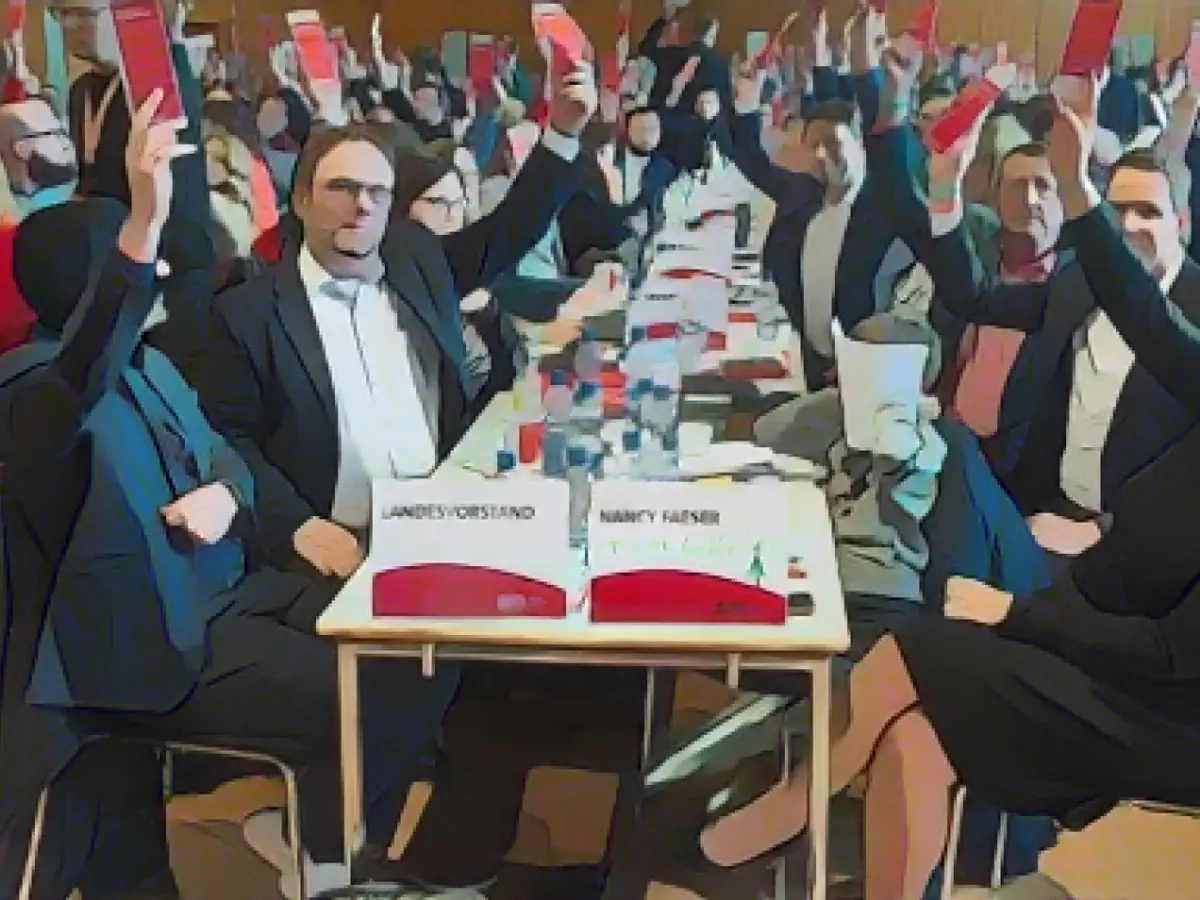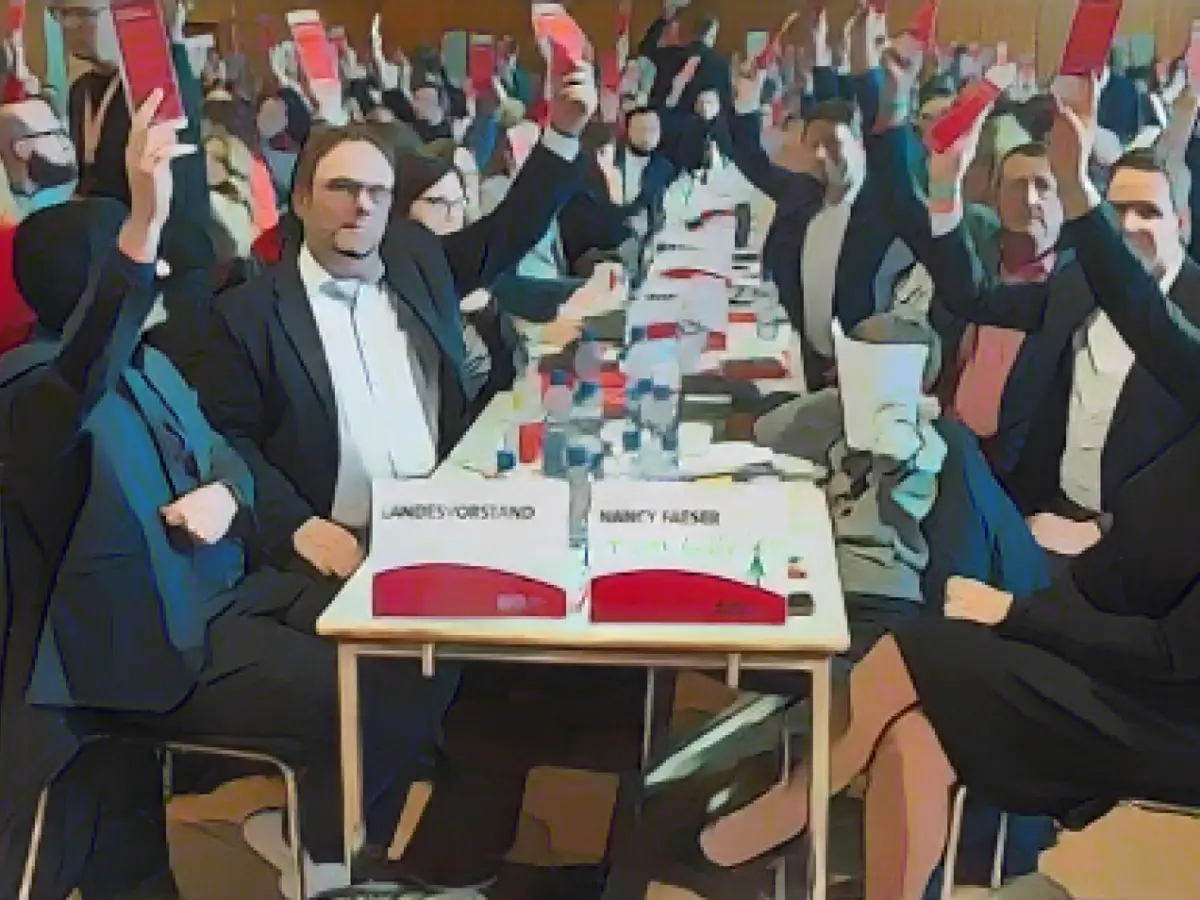Black-Red Coalition Inks Deal in Hesse Elections Aftermath
It's been two months since Hesse's state elections, and the CDU and SPD have struck a deal. These putative details emerged from the German Press Agency on Thursday morning, following media reports on the topic earlier. The draft agreement, titled 'One for All,' clocks in at a hefty 184 pages, according to the dpa.
The CDU and SPD plan to vote on the document this Saturday – with the former gathering in Frankfurt for their state committee meeting, and the latter gathering in Groß-Umstadt, southern Hesse, for a party conference. Assuming they approve the agreement, it's tentatively set for signing next Monday, December 18.
As reported by the German Press Agency in Wiesbaden, the CDU's Boris Rhein commended the coalition negotiations as 'very constructive' and 'pleasant,' with a harmonious atmosphere. The broad process involved around 200 participants in over a dozen working groups, with avid participation from the SPD's State Leader, Federal Minister of the Interior Nancy Faeser.
The CDU triumphed in the Hesse elections, yet opted for a coalition with the SPD rather than the Greens – marking the first CDU-led government in Hesse's history. This choice was influenced by exploratory talks between the CDU/CSU and the Greens, which ultimately led to the CDU favoring the SPD.
The draft agreement's foreword discusses various challenges, such as the conflict in Ukraine, Hamas terrorism, the 'economic and migration crisis,' and climate change – asserting that these issues collectively represent unprecedented challenges. The agreement concludes that 'we will overcome these challenges together – or not at all,' heralding the formation of a 'broad Hesse coalition' for the task.
The agreement's crux revolves around key issues papered over by both parties in November. This includes a larger educational offering, from kindergartens to universities, along with increased teacher counts. The draft also advocates for ensured security with more police officers, while striking a delicate balance between the right to asylum and irregular migration limitation.
The CDU, as the senior partner, will manage ministries such as interior, finance, education, and agriculture, environment, viticulture, forestry, hunting, and homeland. The SPD, meanwhile, is entrusted with the economic, energy, transportation, housing, and rural affairs; labor and social affairs; and science and culture departments.
These ministry distributions underscore a 'Rhine' focus, emphasizing vineyards and forestry in the wider government structure. With these power distributions, the Hessian state parliament is expected to convene in Wiesbaden on January 18, 2024.
Related articles
Enrichment Insights
After the 2023 Hesse regional elections, the CDU and SPD formed a coalition, and Boris Rhein, the CDU's incumbent Minister President, is expected to continue in the role following negotiations that were 'very constructive' and 'pleasant.' The SPD, led by Federal Minister of the Interior Nancy Faeser, joined forces in these negotiations to ensure they catered to their interests. The draft agreement, with the motto 'One for All,' outlines the vision of the CDU and SPD for the regional government, tackling various challenges and manifesting their shared values and policies, such as education and security.








